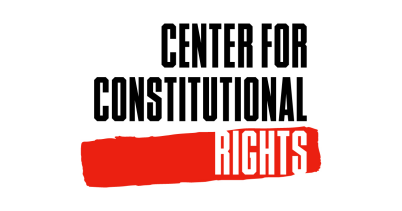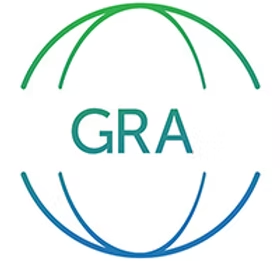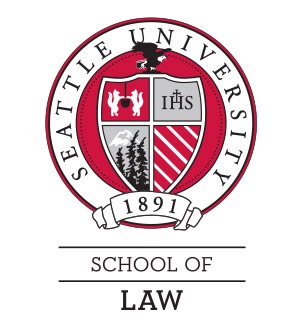Share
Arbitrary Detention
Arbitrary detention is a violation of due process, a right every person has to know and challenge the reason for their imprisonment and a guarantee that the government will follow the law when depriving someone of liberty.
Guided by principles in the U.S. Constitution and the International Covenant on Civil and Political Rights we work to end arbitrary detention in the United States.

Litigate
We go to court with human rights defenders pursuing systemic change.
-
Prisoners’ Legal Services v. Department of Homeland Security: Protecting the First Amendment and attorney-client privilege in immigration detention
Immigration detention center Buffalo Federal Detention Facility ends practice of opening, copying, and retaining privileged legal documents transmitted to detained people after lawsuit.
-
Bledsoe v. Willis: Standing up to malicious prosecution
This case challenges the malicious prosecution for burglary of an innocent handyman sent to repair a broken window, part of a pattern by Louisiana authorities of unjustified prosecution and coerced plea bargaining.
-
Uriostegui Rios v. Trump: Freeing torture survivors from indefinite detention
This case asks whether the federal government can continue to detain someone who was granted deferral of removal under the Convention Against Torture when there is no substantial likelihood it will be able to remove her to a third country in the foreseeable future.
-
G.T. v. McShane: Fighting ICE surveillance
After lawsuit, government removes GPS ankle monitor of person released from detention by an immigration judge’s order of release on bond alone.
-
N.N. v. McShane: Fighting ICE surveillance
Federal court rules ICE use of GPS surveillance is unconstitutional when an immigration judge ordered release from detention on bond alone.
-
Daley v. Ceja: Preserving accountability for arbitrary immigration detention
Tenth Circuit holds that people who successfully challenge arbitrary immigration detention are eligible for attorney’s fees.
-
Guerra Leon v. Noem: Protecting abused and neglected youth from mandatory detention
Federal court holds the government cannot detain young person protected from removal under program for children abused and neglected by a parent.
-
Kostak v. Trump: Stopping the expansion of mandatory detention
This case before the Fifth Circuit defends a lower court decision holding that mandatory detention for arriving non-citizens does not apply to a long-time resident of the U.S.
-
Ventura Martinez v. Trump: Stopping the expansion of mandatory detention
This case before the Fifth Circuit defends a lower court decision holding that mandatory detention for arriving non-citizens does not apply to a long-time resident of the U.S.
-
Amaya v. Trump: Ending immigration detention at Angola
This case challenges the repurposing of a notorious, inhumane, and shuttered unit at the Louisiana State Penitentiary, also known as Angola, as an immigration detention center used to indefinitely detain people as punishment for past crimes for which they have already served their time.
-
Savane v. Francis: Fighting arbitrary re-detention of asylum seekers
Federal court holds that ICE violated due process by detaining asylum seeker it had previously released on parole without first giving written notice.
-
Ceesay v. Kurzdorfer: Defending due process at ICE check-ins
This case before the Second Circuit defends a lower court decision holding that the government violates due process when it detains someone at an Immigration and Customs Enforcement check-in without following its own regulations.
-
Pataraia v. Noem: Fighting indefinite detention after winning an immigration case
This case challenges the U.S. government’s policy of indefinitely detaining people who have won immigration relief from deportation after a finding that they will be persecuted or tortured if deported to their countries of origin.
-
RFK Human Rights v. Department of Homeland Security: Defending humane and effective alternatives to immigration detention
This case under the Freedom of Information Act asks why the federal government ended a program that returned a 100% immigration court appearance rate without detention or surveillance at 90% of the cost.
-
Nersisian v Harper: Fighting disability discrimination in immigration detention
ICE releases 51-year-old woman with severe disabilities after lawsuit.
-
Hodge v. Brophy: Fighting indefinite civil detention
Second Circuit reverses lower court after holding that due process bars prolonged immigration detention without a bond hearing.
-
Washington v. Smith: Standing up to stop-and-frisk policing
This case challenges biased policing practices of Louisiana’s St. Tammany Parish Sheriff’s Office, including the humiliating practice of unnecessary, suspicion-less and nonconsensual frisks that Black men are subjected to in intimidating and unjustified traffic stops.
-
Cenesca v. Feeley: Fighting prolonged solitary confinement in immigration detention
Federal court finds due process violated by prolonged immigration detention with repeated solitary confinement.
-
Davis v. Garland: Fighting indefinite civil detention
Federal court holds due process requires consideration of alternatives to detention at an immigration bond hearing.
Expose
We uncover wrongdoing in reports, complaints, and public hearings.
Educate
We inform the public and policymakers about systemic human rights abuses and how to stop them.
Our Partners
-

Center for Constitutional Rights
The Center for Constitutional Rights is dedicated to advancing and protecting the rights guaranteed by the United States Constitution and the Universal Declaration of Human Rights.
-

California Collaborative for Immigrant Justice (CCIJ)
CCIJ utilizes coordination, advocacy, and legal services to fight for the liberation of immigrants in detention in California.
-

Global Rights Advocacy (GRA)
CCIJ utilizes coordination, advocacy, and legal services to fight for the liberation of immigrants in detention in California.
-

Project South
Project South’s work is rooted in the legacy of the Southern Freedom Movement, and our mission of cultivating strong social movements in the South powerful enough to contend with some of the most pressing and complicated social, economic, and political problems we face today.
-

Seattle University School of Law
Seattle University is dedicated to educating the whole person, to professional formation, and to empowering leaders for a just and humane world.
-

La Resistencia
La Resistencia is a grassroots organization led by undocumented immigrants and people of color that have been oppressed by the immigration enforcement system.
-

Gittis Legal Clinics
The Gittis Legal Clinics are Penn Carey Law’s teaching law firm, comprised of nine in-house clinics that offer students unique opportunities to develop essential lawyering skills and professional values.
Help us protect human rights
Please give now. Your contribution will make a difference in the critical effort to achieve equal rights for all.



